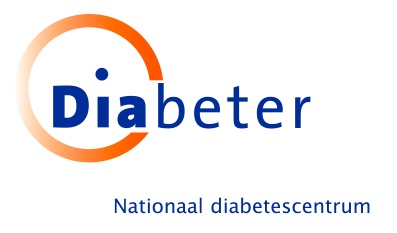Diabeter as a prime example of value based healthcare in chronic diseases
Diabeter is a patient-centric, Dutch-certified clinic network that specializes in providing comprehensive and individualized care for children and young adults with type 1 diabetes (T1D). Founded in 2006 by Dr Henk Veeze and Dr Henk-Jan Aanstoot, Diabeter offers a value-based care model that is focused on diabetes patients, use of technology, e-health solutions, and a unique patient experience. With over 2000 patients in 5 locations across the Netherlands, Diabeter is one of the largest T1D clinics in Europe.
All people with type 1 diabetes are at high risk for severe long-term microvascular and macrovascular complications, such as kidney disease, blindness, amputation, myocardial infarction, and stroke. These complications have a huge impact on patients. It also has big impact on the health care system, and they account for a large portion of diabetes expenditures. Diabetes is the 2nd largest chronic disease in childhood. Moreover, high, low and fluctuating glucose values have an impact on the brain and thereby daily performance, concentration and behaviour and can strongly influence patients lives, work- and school results. Research has clearly established that regulating glucose values to (near)normal is of eminent importance in delaying the onset and reducing the severity of all these complications. It is globally accepted that tightly controlled glycemia (measured as glycosylated haemoglobin (HbA1c) levels) is key to reduction of short- and long-term risk of diabetes complications. However, only around 30% of all type 1 diabetes patients manages to reach the HbA1c target of less than 7.5% (58 mmol/mol) set by the International Society for Pediatric and Adolescent Diabetes (ISPAD). Thus, optimal shot-term and long-term outcomes are not achieved by most patients. This is largely due to the complexity of glucose control and the lack of implementation of modern technology AND modern healthcare. Yet, when comparing Diabeter’s outcomes to other clinics with more than 100 patients, 55% of its patients under the age of 18 reach the target, compared to average 31% in the NL, making Diabeter a top performing clinic in the nation. In addition, at Diabeter, only 6% of children have HbA1c levels that are higher than 85 mmol/mol patients. These superior outcomes of Diabeter lead to less direct annual costs to type 1 diabetes patients (mainly driven by a lower patient hospitalization rate compared to Dutch pediatric diabetes clinics (3% versus 8%) resulting in a cost savings of 8.6%). Long-term outcomes are expected to be better as a 1% HbA1c increase from 7% to 8% can double the amount of long-term complications.
In contrast to hospital delivered diabetes care (with many separate departments, managers and responsibilities), Diabeter is organized as an Integrated Practice Unit. In Diabeter a multidisciplinary, interdependent team focusing solely on diabetes care and taking joint responsibility for the full cycle of care. One care manager is assigned to each individual patient, coordinating treatment over the whole care cycle and serves as the contact person for a patient and the family. Quarterly follow up and annual comprehensive assessments are done. This allows for reassessment of regimens and intervention by the multidisciplinary team as required. Between visits, the Diabeter team supports patients by e-mail, video consultations, and phone to continuously adjust and maximize their treatment. Patients can use an emergency hotline that gives them immediate access to a specialist doctor 24 hours a day, 7 days a week. To optimize self-care management and also to understand how care impacts outcomes, Diabeter developed a disease management system VCare, collecting, measuring and analysing baseline data collection and outcomes in a standardized way regardless of how type 1 diabetes is treated—that is, regardless of whether patients are using multiple daily injections (MDIs), an insulin pump, or a sensoraugmented pump (SAP). Vcare measures more than 150 outcome parameters every night helping patients, HCP’s and management to be transparent, innovative and aimed at value-addition.

